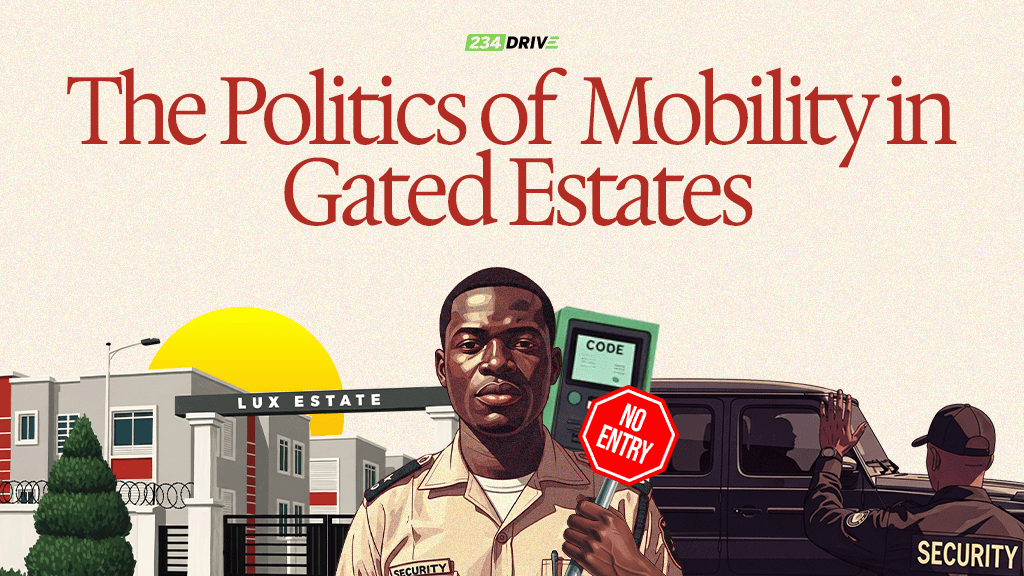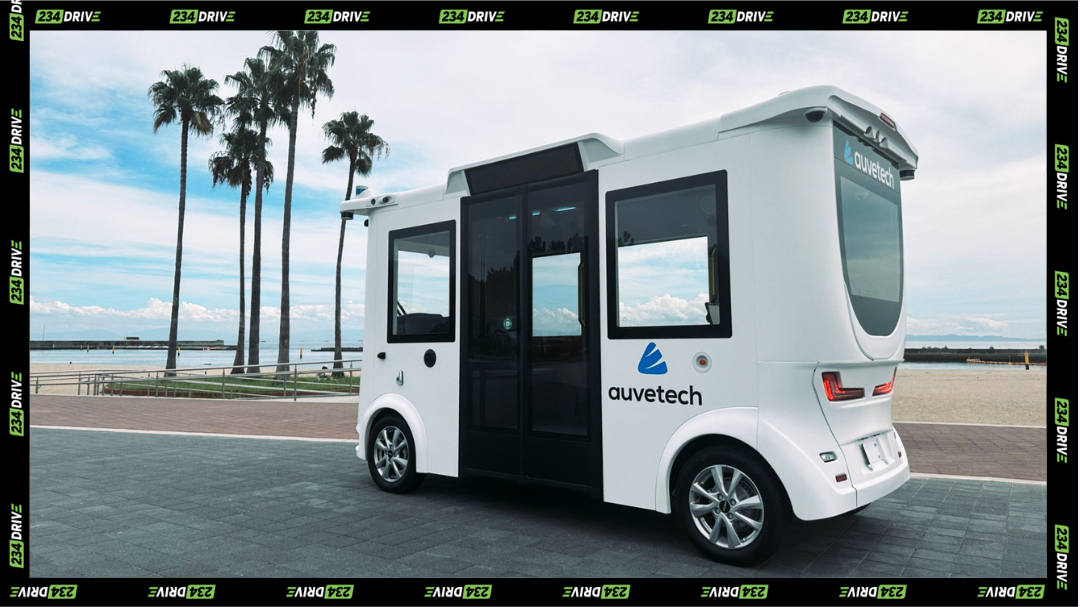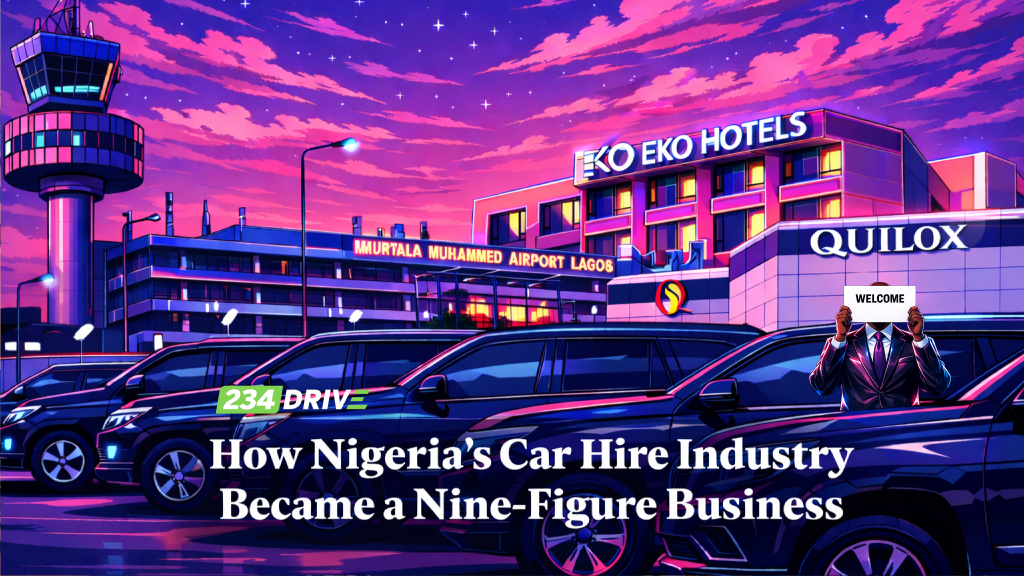The black Range Rover Sport barely slows down. The security guard spots the approaching vehicle and immediately begins the familiar dance. He straightens his shoulders, quickens his pace toward the electronic gate controls, and offers a respectful nod as the tinted windows wind up. No questions asked. No code requested. The entire interaction lasts maybe fifteen seconds.
Three minutes later, a faded blue ‘Uber Corolla’ approaches the same gate. This time, the guard plants himself directly in the vehicle’s path, hand raised. The window rolls down to reveal a young woman in a crisp white shirt. “Good morning, sir. I’m here to see Mrs. Adeleke in Block C”. The interrogation begins: “What is your full name? What is her full name? Do you have her number? Call her now”.
This scene, replayed countless times across Nigeria’s gated neighbourhoods, reveals something profound about how we move through our cities and more importantly, who gets to move freely.
But perhaps nowhere is this disparity more starkly illustrated than in the viral X discourse that erupted when a user made a simple observation: “If you drive a nice car in Lagos, you’ll realise fairly quickly that you don’t need a code to enter any of these estates”.
The responses that flooded in read like a collective confession of an open secret everyone knew but rarely discussed publicly.
Welcome to Car Caste System 101
Nigerian gated estates operate on an intricate, largely unwritten caste system of vehicles and their perceived owners. At the top sit the luxury SUVs: Range Rovers, Lexus GX models, Mercedes G-Wagons, and the occasional Lamborghini Urus or Bentley Bentayga. These vehicles function as mobile diplomatic passports, granting their occupants near-unlimited access with minimal scrutiny.
The power of this vehicular privilege became clear when another X user, @gisifinestbabe shared her bewildering experience: “I remember last year I was in a talking stage with this guy that drives a 2023 G-wagon. One night he was apologizing to me over something he did earlier and when I stopped responding he said ‘I’m coming to your estate’. I didn’t even bother to reply cos who go send am code lol. Omo I was surprised a few minutes later someone was horning [sic] so loudly in front of my gate… I was stunned like who allowed you in, he said it’s not him it’s the car”.
The irony wasn’t lost on her as she continued: “And this same estate, me that is a resident, if I forget my resident card or can’t generate code sometimes they hesitate in letting me in”.
Another user, @royaltyuso, was even more direct: “Got into Banana Island multiple times without a code because of a nice car”. Banana Island, one of Lagos’s most exclusive residential areas, apparently operates on the same unspoken rules as everywhere else.
Below this tier sit the ‘respectable’ vehicles; newer Toyotas, mid-range Mercedes sedans, BMW 3-series cars. These get ‘polite scrutiny’. Guards will ask questions, but with deference.
Then comes the vast middle ground: older vehicles, commercial cars, buses, and anything that looks like it’s seen better days. These face ‘the full treatment’; extended questioning, phone calls, sometimes physical searches.
The difference becomes absurdly obvious in real-time. One user described: “When I stayed in Ogudu GRA, anytime I take a normal Uber, they will always stop us until they see my face, then pass us. Luxurious cars always receive ‘shon sir’”. That deferent salute tells you everything about the power dynamics at play.
Quick Maths: How to Judge a Car in 3 Seconds
“As a young guy, generally everybody assumes you’re a yahoo boy or you’re up to no good until they know you”, explains Tobi*, recounting his experiences across multiple estates. “So for cars, I mean, you can tell an expensive car when you see it or smell it”.
The security procedures themselves reveal the hierarchy in action. “They do boot checks and use gadgets to scan your car for bombs”, Tobi explains about the extensive protocols he has experienced. “I’ve been through canine checks too. They use dogs to sniff your car in case you’re carrying coke or whatever”. These thorough security measures, however, apply selectively.
The profiling extends beyond vehicles to tribal and gender based assumptions. “In Ibadan, I don’t look Yoruba enough for some people”, he continues. “On one occasion, I was trying to enter one estate and the guards, they were speaking Yoruba assuming I didn’t understand, saying ‘where is this omo nna dey go (where is this Igbo boy going)?’ I’m a Yoruba boy. I understood what they were saying and it was just tribal profiling. When I cheekily responded in Yoruba saying I was going to see their boss, they were shocked”.
The treatment isn’t just about delays, it’s about dignity. In that incident, “they wanted me to step out of the vehicle, which is wrong. But I mean, they were just ‘doing their jobs’ or more”. The casual violation of boundaries reveals how security protocols become pretexts for asserting control.
The system breeds a particular kind of frustration. “For residents who drive, they know them, recognise their cars and resident stickers, so the checks are not strict. For visitors, if you’re a regular visitor, they might recognise you—they will still check, but it’s not that strict. But if you’re visiting for the first time or they don’t recognize you, they treat you like you’re guilty until proven innocent of course, depending on what you’re driving,” Tobi observes.
The disparity becomes stark in real-time comparisons. He recalls one particularly frustrating incident: “I was driving a Toyota Corolla—very, very new, no plate number—and the guard said ‘oga abeg, abeg carry this pangolo come this side’”. The dismissive term ‘pangolo’—Nigerian slang for tin/aluminium was used in this instance as a small, unremarkable car—stung particularly because his vehicle was brand new. “There was a Range Rover coming behind me, one that had no estate stickers on the windshield for verification. They didn’t even check the person at all. The driver just flashed and went in, but I had to park on the side… I almost went into a ditch”.

The contrast was impossible to miss: a brand new Toyota relegated to ‘pangolo’ status while an older Range Rover received royal treatment.
The X discourse revealed this wasn’t isolated. @heynengi captured the surreal speed of luxury car access: “Guest: I’m almost at your estate. Me: Okay, I’ll get you a code. Barely a minute later… Guest: I’m in front of your house. How??”
Despite providing all required information—house number, resident’s code— Tobi was still delayed for over 20 minutes. “Even after confirming everything, they still delay you and ask you to ‘drop something’ ”. The equation is simple: Range Rover = pass. Pangolo = problems.
The Daily Struggle Olympics: Service Worker Edition
For Nigeria’s army of service workers—domestic staff, drivers, artisans, delivery personnel—this system creates a complex daily navigation game. Success requires understanding the unspoken rules.
Tochi*, who works as a housekeeper in Ikoyi says she has mastered estate entry. “I dress a certain way when going to work. Not too flashy, but neat. I speak English, not pidgin, when talking to security. I carry a proper bag, not a black polythene bag and I never forget the occasional tips… something they can remember me by so next time, I’d have an even smoother entry”.
The expectation of bribes reveals how estate security has become an informal taxation system on mobility, with pedestrians and ‘small car’ drivers bearing the heaviest burden.
Service workers face a peculiar double bind: they’re essential to estate operations but treated as potential security threats. They must be inside the gates to do their jobs but are made to feel their presence is barely tolerated.
“Every Saturday, I enter three different estates for my cleaning work on my ‘legedis benz’”, explains Lola*, who has worked in Iju estates for eight years. “Same security guards who have seen me for years, but still, every day they want to search my bag, ask me questions, sometimes make me wait while they call to confirm. They know me, but they still treat me like I dey carry bomb ”.
The transportation challenges are even more complex. Most service workers rely on public transportation—buses, shared taxis, okadas (motorcycle taxis) to reach work. But these modes of transport are often viewed unfavourably by estate security, creating a dilemma where the very people who need to enter estates are using the forms of transportation most likely to face scrutiny.
Private Communities, Dictator Energy
The proliferation of gated estates has fundamentally altered urban mobility patterns, nowhere more dramatically than in Lagos. What began as discrete residential developments has evolved into a network of semi-private territories that use public roads while restricting public access.
Gates don’t just control people, they shape the flow of entire cities. The power of estate gates to cause citywide chaos became vivid in recent years through multiple high-profile incidents that brought Lagos traffic to its knees.
In a dramatic 2023 incident, Banana Island was completely shut down, with gates closed for both entry and exit, causing massive gridlock on the Lekki-Ajah axis and parts of Ikoyi. The lockdown was so severe that vehicles were seen stranded in long queues within the estate itself, with security personnel manning the gates. Social media erupted with frustrated residents posting videos of the chaos, with one X user lamenting: “We love suffering in this country. So because government officials dey Banana Island, no car fit go in or out of the estate until they are gone? They have successfully created another crazy traffic that will affect Lekki and part of Ikoyi”.

But this wasn’t an isolated incident. The systematic abuse of gate power had become so prevalent that in 2023, the Lagos State Government began the removal of illegal street gates permanently closed to traffic around Lekki Phase One area. The government’s action came after several days of traffic jams caused by residents’ inability to access connecting roads because of—get this—the indiscriminate mounting and multiplicity of the gates.
The crisis had reached such proportions that resident groups began fighting back. A group called Concerned Lekki Residents, led by Prince Ayoola Ojeikere, applauded the government’s gate removal efforts, saying some residents associations and groups of ‘powerful individuals’ had formed the habit of erecting gates and barricades on various streets for flimsy reasons.
“We wonder why the state government will build roads and some people will indiscriminately mount gates”, Ojeikere complained. His group specifically called out the practice of demanding access codes for public roads, describing it as “infringement of residents’ rights to movement on public roads”.
The Lekki Peninsula offers the most striking example. Over the past decade, the area has transformed from sparsely populated land into a tonne of gated neighbourhoods, each with its own access controls. But here’s the crucial detail: many of these estates sit along what are technically public roads, funded by public money and maintained through public resources.
The result is a peculiar form of privatised public space. Roads that should facilitate movement instead become chokepoints of control. During peak hours, the cumulative effect of estate gates creates what urban planners call ‘artificial congestion’, delays that exist not because of volume, but because of access restrictions.
“You’ll be driving on a road, and suddenly there’s a gate blocking it because someone decided that road now belongs to their estate”, observes Hauwa*, a Lagos resident who commutes daily from Ajah to Victoria Island. “They just claim public roads and make them private. Then you have to find another route, and everyone else is also finding another route, so that road gets congested”.
The irony is stark: communities built to facilitate the free movement of their residents often restrict the free movement of everyone else, and within that restriction, your vehicle’s badge determines whether you experience smooth passage or a rather upsetting interrogation.
Maybe There’s a Better Way?
The challenge isn’t to eliminate gated communities… legitimate security concerns exist. Rather, it’s finding ways to balance security with principles of equitable urban mobility.
“It should be smoother to save time”, suggests Tobi. “I like the key card access thing, biometric access, probably facial recognition, even passwords, if it was automated. Like drive-throughs abroad, you just speak to the system and the gate opens. These car scans can be automatic too. We have big scanner machines, your car drives through, scans, and you reduce a lot of disrespect”.

Beyond Nigeria’s Borders: A Regional Pattern
But before we conclude that this is a uniquely Nigerian phenomenon, consider the experience of Pize*, a Ghanaian who has lived in gated estates for over two decades. Her story sounds remarkably familiar.
“I was treated differently because I came in a salon Toyota Vitz car”, she explains, “but when I went to visit my friend with a car that would be considered high luxury, they just let me in without asking questions”.
Pize has never set foot in Nigeria, yet her description of Ghanaian estate security mirrors exactly what plays out daily across Lagos, Abuja, Ibadan and other major cities in Nigeria. The same vehicle profiling, the same differential treatment. But even worse, there exists some form of infrastructure segregation: “In my neighborhood, high caste cars have dedicated lanes that do not need to follow protocols so they move faster, while low caste cars are put in lanes that move slower and are congested”.
As both a long-term resident and occasional visitor to other estates, Pize offers the same nuanced perspective we see in Nigeria: “As a resident I’m genuinely fine with the way security handles strangers because it makes me feel safer, but as a non-resident it feels exhausting since they profile you based on the car you use”.
Her solution echoes the reform calls emerging across the region: “I would make sure every car is treated the same for fairness and equality and so that there’s smoother traffic flow”.
This suggests something deeper: the car caste system isn’t a Nigerian quirk or Lagos peculiarity, but a Pan-African urban phenomenon shaped by gated communities, class anxieties, and rapid urbanisation.
Whatever the root cause may be, one thing is clear: when a Ghanaian resident can predict exactly how Nigerian estate security operates without ever crossing the border, we’re looking at something bigger than individual community policies. We’re looking at a regional system of urban apartheid, enforced one gate at a time, one car at a time.
Plot Twist: It Was Never About the Cars
But perhaps the most profound impact isn’t economic or logistical, it’s psychological. Gated estates don’t just control physical movement; they shape mental maps of the city, creating zones of belonging and exclusion.
The viral X thread that sparked thousands of responses wasn’t really about cars or codes, it was about recognition. Recognition that we’ve built a system where your ability to move freely depends on whether you look like you belong. When someone can enter Banana Island ‘multiple times without a code because of a nice car’, when a resident struggles to access their own estate while visitors in luxury vehicles waltz through, we’re not talking about security anymore. We’re talking about the casual, everyday enforcement of inequality.
From Accra to Lagos, from middle-class estate gates in Kumasi to luxury developments in Lekki, the same script plays out: Range Rovers get the royal salute, Corollas get the interrogation, and everyone pretends it’s about security rather than status.
The same person becomes more or less trustworthy based purely on their vehicle, regardless of their identity or actual right to be there. When people can predict with near-certainty that their G-wagon will open doors their Camry cannot, the ease with which a Range Rover glides through while a ‘Legedis-Benz’ faces extreme interrogation isn’t just about cars, but also about who we consider worthy of unquestioned access. The time spent explaining yourself to security isn’t just about inconvenience, it’s about whose time we value and whose dignity we protect.
The gates themselves are just metal and electronics. But the decisions we make about whom they open for, how quickly, and under what conditions… Those decisions open and close possibilities for millions navigating modern Nigerian urban life. When private estates control public passage based on what you drive, the city stops being one network and starts being a patchwork of permissions.
And in Nigeria—and increasingly across West Africa—that permission often comes on four wheels, preferably ‘tear-rubber’, Mercedes, and less than five years old.
*Names have been changed to protect privacy.










